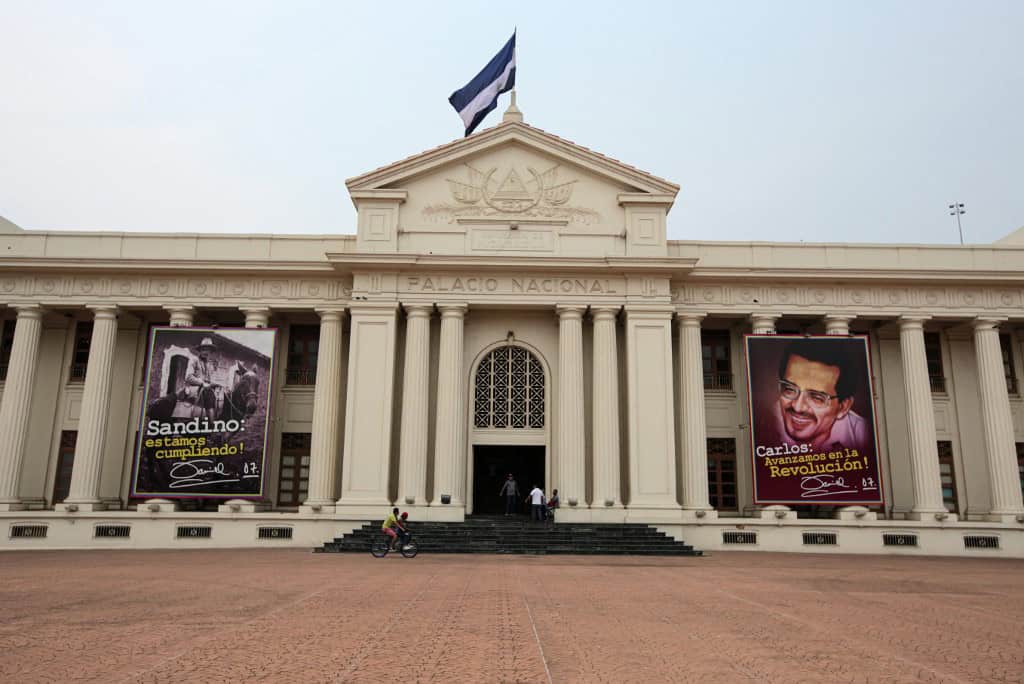Q COSTARICA — Costa Rica’s Constitutional Court of Sala IV ordered the release of the migrants deported to our country by the United States and still being held at the Temporary Migrant Care Center (CATEM).
“By majority, the appeal is partially granted, and Jean Paul San Lee Lizano, in his capacity as Acting Director General of Immigration and Foreigners, or whoever holds that position, is ordered to issue the necessary orders, coordinate the relevant actions, and make the corresponding arrangements within the scope of his or her powers, so that within 15 calendar days following the communication of this ruling, in relation to the foreigners deported from the U.S. and admitted by Costa Rica due to the cooperation agreement between the two countries, through a final, individual and reasoned decision, each person’s immigration status is determined and they are released.
“At the same time, within that same period, he or she must coordinate with the relevant public entities to assess the situation of each of these individuals in order to determine what type of health, education, housing, and, in general, social assistance they require from the State,” the Constitutional Court’s ruling states.
– Advertisement –
The ruling follows with: “Furthermore, the appeal regarding the alleged violation of the right of access to public information was dismissed, and it was clarified that the decision to allow entry for reasons of humanity is a political act beyond the control of constitutionality. The State was also ordered to pay damages resulting from the appealed acts.”
The Deportees
Earlier this year, a group of 200 migrants was deported by the United States to Costa Rica, specifically to the CATEM facilities in Corredores de Puntarenas.
The first group, consisting of 135 people, arrived in the country on February 20, landing at Juan Santamaría International Airport (SJO). All were authorized exceptional and temporary entry, without having to comply with the usual immigration procedures, thanks to an agreement negotiated by President Rodrigo Chaves with the US government.
Read more: 65 children and two pregnant women among the arrived in Costa Rica deported from the US
Costa Rica’s immigration service, the Dirección General de Migración y Extranjería (DGME), detailed that the US conducted an individual analysis of each person, ruling out links to terrorist groups or Interpol alerts. Furthermore, all expressed their willingness to return to their countries of origin.
– Advertisement –
Days later, on February 25, a second group arrived, consisting of 65 migrants.
The migrants had arrived to the United States from countries such as Afghanistan, Armenia, Azerbaijan, China, Georgia, Ghana, Iran, Jordan, Kazakhstan, Russia, Turkey, Uzbekistan, India, Congo, Nepal, Yemen, and Vietnam.
Migrants still in the country
On June 12, Omer Badilla Toledo, Deputy Minister of the Interior and director of the DGME, reported that 33 migrants from the original group remained in Costa Rica.
– Advertisement –
Badilla indicated that these individuals have freedom of movement within the country and the option to regularize their immigration status.
Extension in force
On April 21, a resolution was published in La Gaceta, by which the DGME extended the period of stay for this group, extending the original document.
According to the original resolution, the migrants could remain for three months, with the possibility of an additional extension for the same period, at the discretion of the institution. After this period, they must leave the country or begin a regularization process, in accordance with current regulations. Concerns of the Ombudsman’s Office
Defensora de los Habitantes (Ombudswoman) Angie Cruickshank emphasized that, according to international treaties, Costa Rica cannot deport people to countries where their lives are in danger. She also highlighted that few of the deported families wish to return to their country of origin.
One of the main problems identified by the Defensoría (Ombudsman’s Office) is the lack of clear information for deported migrants, who are unaware of their legal status in the country.
“They are not people who have committed any crime and, therefore, are not deprived of their liberty; they should be able to move if necessary, but they tell us that, if they request it, they must be protected,” Cruickshank stated.
The Ombudsman’s Office also expressed concern about the conditions at CATEM, which houses both migrants deported from the US and people in transit, the majority now seeking to return to their countries, such as Venezuela and others.
Although they receive medical care and food, the Ombudsman’s report warns that multiple deficiencies persist that must be addressed.
– Advertisement –
Source link
Rico



